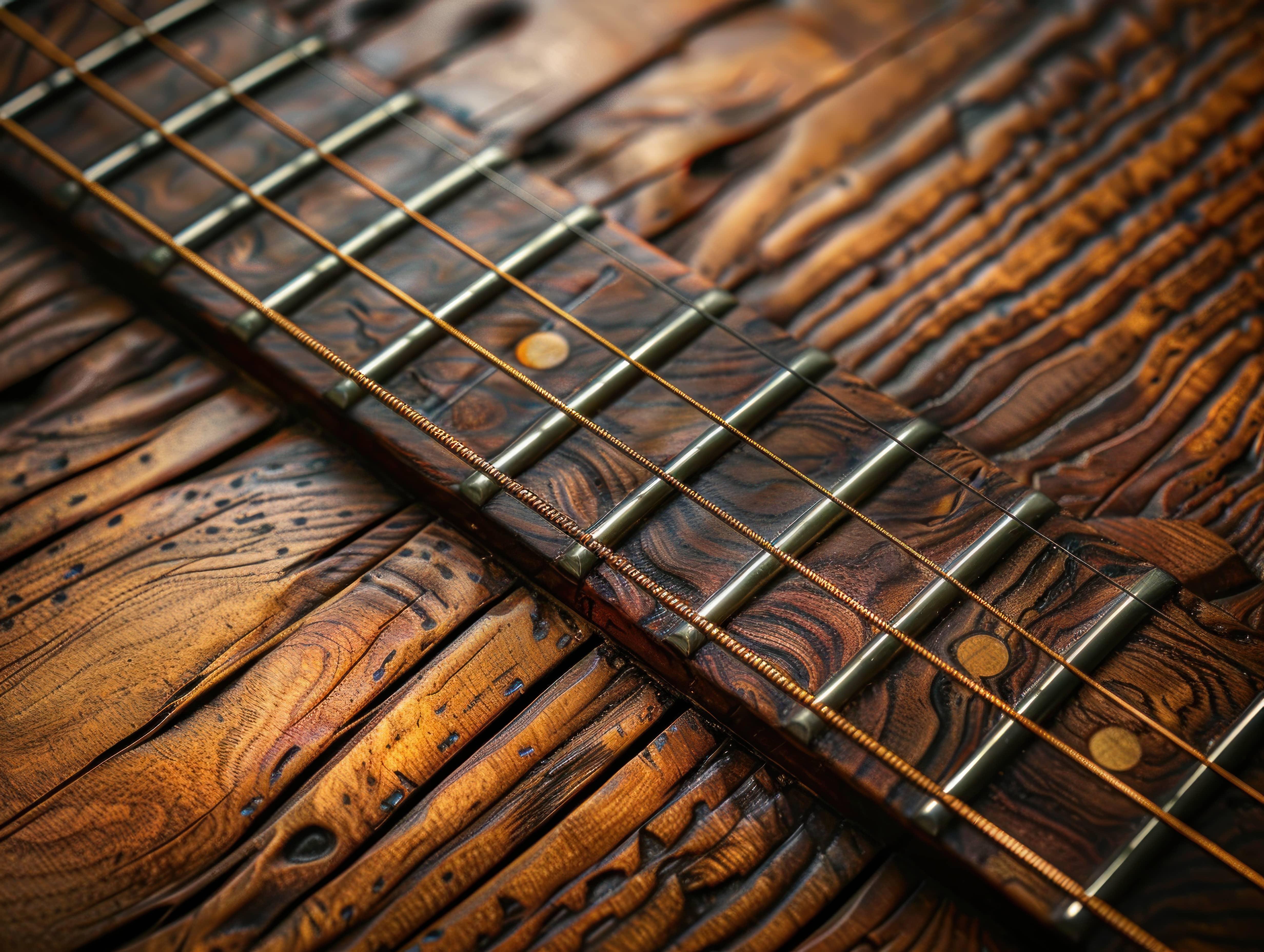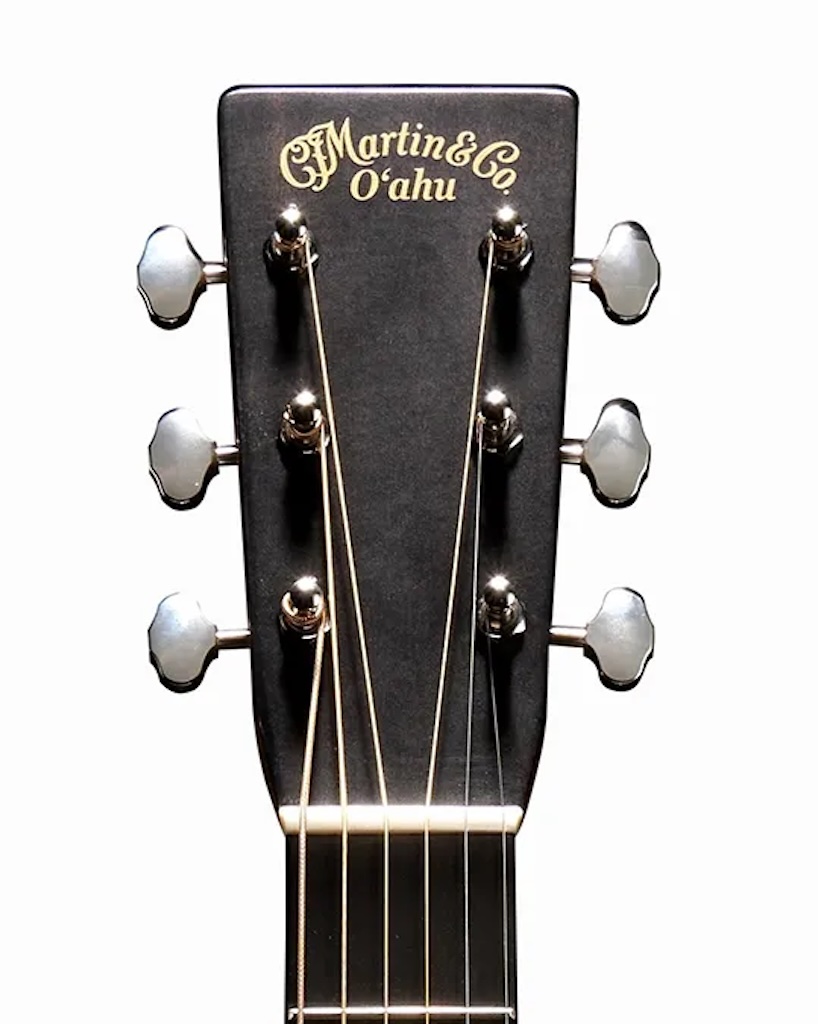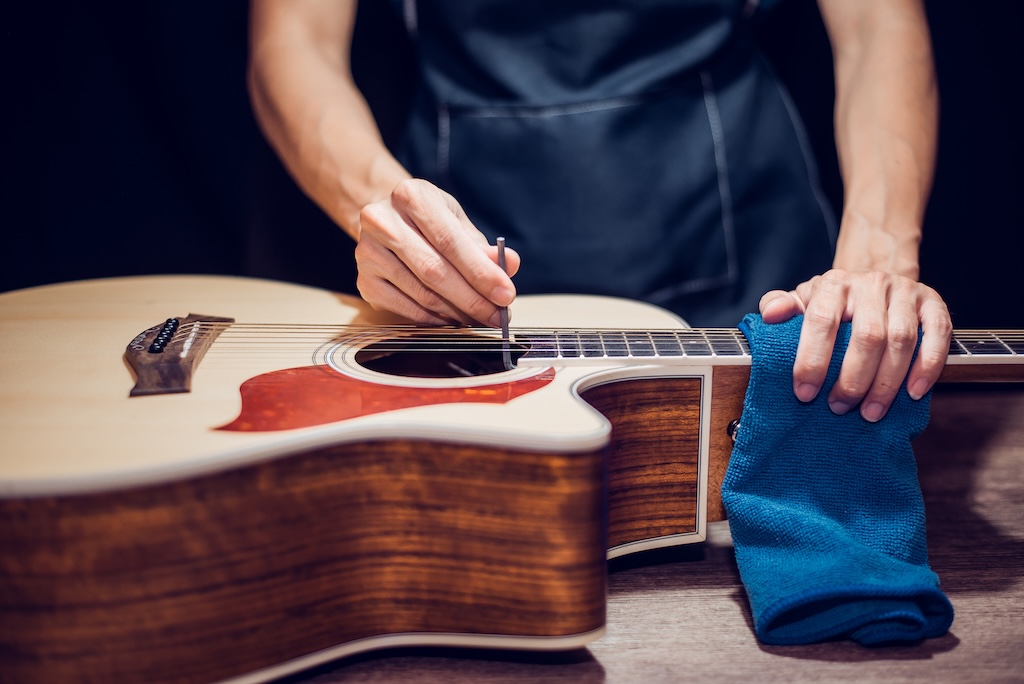
Maintaining your guitar is crucial for preserving its sound quality, playability, and appearance over time. Whether you’re a beginner or a seasoned player, proper care ensures your instrument stays in top shape and continues to perform well. This guide will walk you through essential guitar maintenance tips, including cleaning, storage, and regular upkeep, to keep your guitar in excellent condition for years to come.
1. Cleaning Your Guitar
Regular cleaning helps protect your guitar from dust, dirt, and oils that can affect its appearance and playability. Here are some steps to ensure your guitar stays clean:
- Wipe down the body: Use a soft, lint-free cloth to wipe down the guitar’s body after each use. This helps remove sweat, fingerprints, and grime that can accumulate over time.
- Clean the strings: Dirt and oil from your fingers can build up on the strings, reducing their lifespan and sound quality. Use a string cleaner or a clean cloth to wipe the strings after playing. Replacing old strings regularly also improves the guitar’s tone.
- Polish the fretboard: The fretboard can collect oil and dirt, especially if it’s made of unfinished wood like rosewood or ebony. Use a specialized fretboard cleaner and conditioner every few months to keep the wood from drying out or cracking.
- Avoid harsh chemicals: Only use guitar-specific cleaning products to avoid damaging the finish or wood of the guitar. Household cleaners can be too harsh and may harm the guitar’s surface.
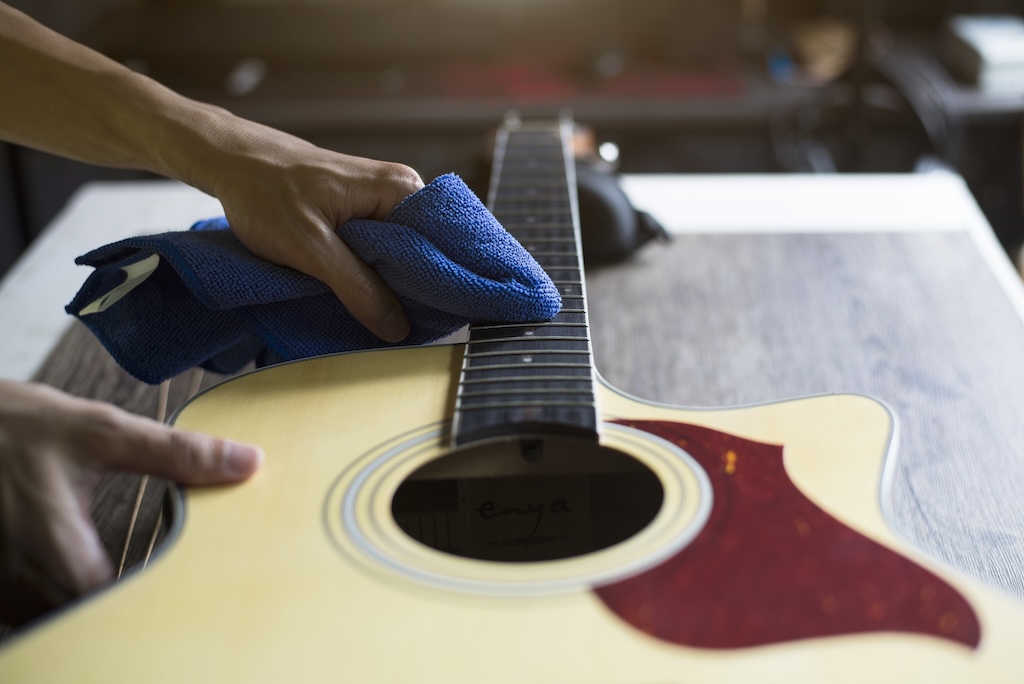
2. Storing Your Guitar Properly
How you store your guitar can significantly impact its lifespan. Proper storage keeps the guitar safe from physical damage and environmental factors that can warp or damage the instrument.
- Use a guitar case: Storing your guitar in a hard case when not in use provides the best protection from dust, accidental knocks, and environmental factors. If you don’t have a hard case, a padded gig bag is a good alternative.
- Avoid extreme temperatures: Guitars are sensitive to temperature and humidity changes. Avoid exposing your guitar to direct sunlight, excessive heat, or cold environments. Extreme temperatures can cause the wood to expand, contract, or even crack.
- Control humidity levels: Too much moisture can cause the wood to swell, while too little humidity can make it shrink and crack. Ideally, store your guitar in a place where humidity levels range between 45-55%. Using a guitar humidifier inside the case can help maintain proper moisture levels, especially in dry environments.
- Keep it on a stand: If you prefer to leave your guitar out, invest in a sturdy guitar stand to avoid it falling over. Never lean your guitar against a wall or furniture, as it can easily slip and get damaged.
3. Changing Strings Regularly
Guitar strings don’t last forever, and old, worn-out strings can significantly affect your guitar’s sound. Depending on how often you play, you should replace your strings every few weeks to every few months.
- Signs to replace strings: If your strings sound dull, feel rough, or are visibly corroded, it’s time to change them. Fresh strings will brighten your guitar’s tone and improve playability.
- Choose the right strings: Not all guitar strings are the same. For example, acoustic, electric, classical, and bass guitars require different types of strings. Make sure to use the correct gauge and material for your instrument to get the best sound and playability.
- Stretch new strings: After putting on new strings, gently pull on them to stretch them out. This helps prevent them from going out of tune quickly when you first start playing.
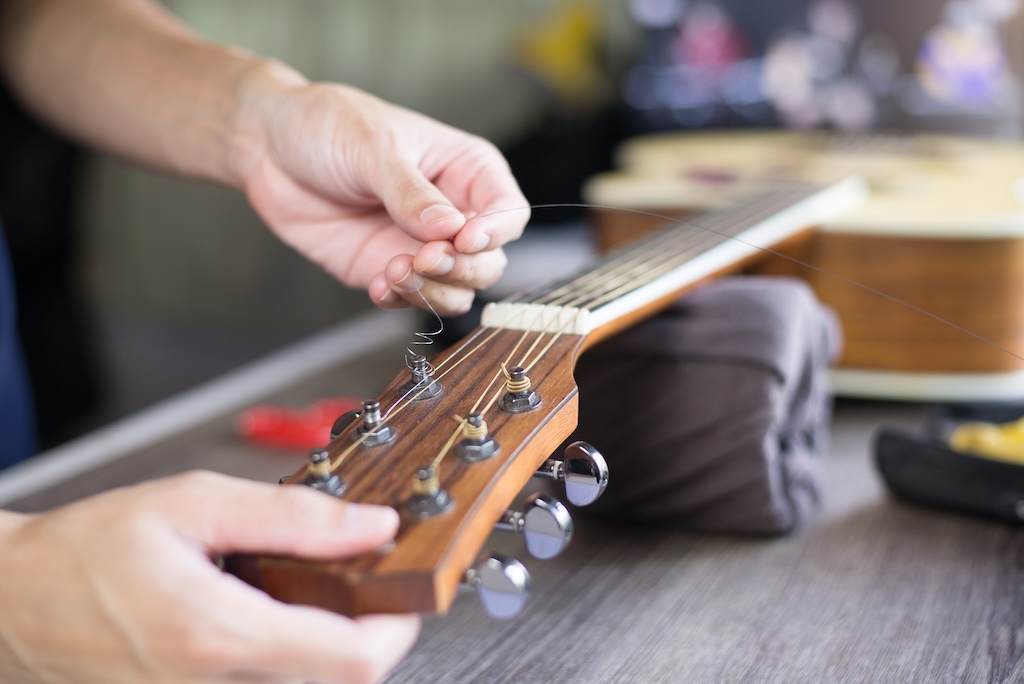
4. Regular Setup and Inspection
Just like any instrument, guitars need regular adjustments to stay in optimal condition. A professional guitar setup can help with tuning stability, playability, and sound quality.
- Check intonation: Over time, your guitar’s intonation (the accuracy of the pitch across the fretboard) can drift. A professional setup ensures your guitar stays in tune across the neck, making it sound better in different positions.
- Adjust the action: The action refers to the height of the strings from the fretboard. If the action is too high, the guitar can be hard to play, while too low an action can cause buzzing. A professional can adjust the truss rod or bridge to set the correct action for your playing style.
- Inspect the frets: Frets can wear down with time and use, affecting the guitar’s playability. Regular inspection of the frets ensures they remain smooth and even, preventing buzzing or dead spots on the fretboard.
5. Transporting Your Guitar Safely
Whether you’re traveling to a gig, lesson, or practice session, it’s important to transport your guitar safely to avoid damage.
- Use a padded case: Always transport your guitar in a padded gig bag or hard case to protect it from impacts. A hard case offers the best protection, especially for air travel or long-distance trips.
- Secure the guitar: Make sure the guitar is securely fastened inside the case to prevent it from moving around. Loosen the strings slightly to reduce tension, especially if you’re flying, as changes in air pressure can affect the guitar.
- Handle with care: When moving your guitar, be mindful of its neck and body. Don’t grab it too tightly by the headstock or apply excessive pressure to the strings.
Conclusion
Proper guitar maintenance is essential for preserving the sound quality, appearance, and playability of your instrument. By cleaning your guitar regularly, storing it properly, and ensuring regular maintenance checks, you can extend the life of your guitar and keep it performing at its best. Whether you’re a beginner or an experienced player, taking care of your guitar will help you enjoy its beautiful sound for many years to come.

